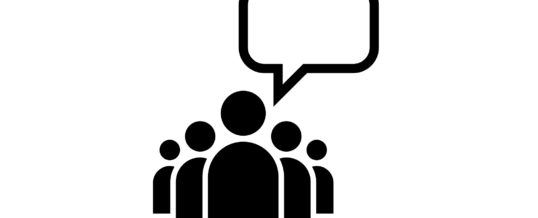
McLeod Group guest blog by John Cameron, June 26, 2023
With Canadian official development assistance (ODA) stuck below the OECD average for more than 20 years, a federal election possible at any time, the governing Liberal Party agnostic towards ODA and opposition Conservatives likely to propose cuts, it is time for civil society organizations (CSOs) to radically rethink advocacy and public engagement strategies. Approaches based on maintaining good relationships with government officials have not resulted in more or substantively better ODA. CSOs need to invest more money and effort to mobilize Canadians on global development issues.
The 2023 federal budget reaffirmed the ongoing cycle of advocacy and disappointment by CSOs in the international development sector. Despite highly strategic efforts by Cooperation Canada, the “Bigger than Our Borders” campaign and some individual CSOs, allocations for international assistance were 15% lower than in 2022, according to calculations by Cooperation Canada.
The comparison to 2022, however, is somewhat misleading. Canadian ODA in 2022 reached its highest point since 1995, at 0.37% of gross national income (GNI), according to OECD data. Like almost all donor countries, Canadian ODA grew significantly in 2022 because of increased humanitarian assistance to Ukraine and higher spending on refugee resettlement expenses in the donor country.
Otherwise, ODA has hardly moved for almost two decades, stuck at an average of 0.29% of GNI under both Conservative and Liberal governments. It has remained consistently below the OECD average, despite Prime Minister Justin Trudeau’s claims that “Canada is back” in 2015 and the government’s commitment in 2021 to increase ODA every year until 2030. Looking back to the Conservative Party’s 2019 campaign pledge to cut ODA by 25%, it is hard to imagine that a future Conservative government will be more generous than the current Liberal one. Canadian ODA also remains bogged down by bureaucratic procedures that limit its potential effectiveness.
Few Canadian CSOs have seriously and consistently advocated for Canadian development assistance, beyond lobbying for funding for their own projects. According to a recent study, only 15-20 CSOs have seriously engaged in advocacy for more and better ODA over the past 20 years. Moreover, much of that advocacy adopts “insider” approaches that make only “reasonable” requests, presents “solutions” rather than criticism, and focuses on building good relationships with government officials. While this approach may represent current thinking on effective advocacy and has worked to influence some elements of aid policy, it has failed to obtain significant increases in ODA.
CSOs cannot be blamed for government decisions not to invest in development assistance. But, if CSO advocacy isn’t leading to more and better ODA, it seems fair to ask why CSOs don’t change their advocacy and public engagement strategies.
A big part of the problem is that ODA and global poverty are not salient political issues in Canada. Governments don’t win elections by supporting international assistance. When asked in opinion surveys, Canadians claim that they care about global poverty, but research also shows that global poverty ranks low against domestic concerns. Politicians know this.
The low level of public concern for global poverty leaves even committed CSOs reliant on “insider” advocacy. Unlike other sectors and movements – such as climate change, Black Lives Matter and Indigenous rights – there is no “radical flank” of politically mobilized public supporters pushing for change, leaving CSOs to work on their own to try to influence government decisions about development assistance. The friendly, insider approach to advocacy may be good enough to hold ODA at an average of 0.29% of GNI – but is that really good enough?
CSOs have long been cautious about mobilizing public campaigns for development assistance, partly because it is full of risks and barriers. The “advocacy chill” under the Harper government – budget cuts and targeted Canadian Revenue Agency (CRA) audits for so-called political activities – still echoes loudly. Until 2019, CRA regulations restricted advocacy campaigns involving public calls to action. During election periods, Elections Canada requires that CSOs report their spending on so-called political advertising – which can risk alienating supporters who view policy engagement as partisanship. Public campaigns are also hard to pay for. Most individual donors want their donations to “save lives”, and few foundations provide funding for activism or advocacy. Global Affairs Canada supports public engagement work by CSOs, but not “advocacy” – leading risk-averse CSOs to avoid public engagement activities that could be perceived as even remotely critical of the government. On top of these challenges, heavy reliance on public funding by some CSOs can limit their willingness to publicly criticize the government.
CSOs have a difficult decision to make. Stick with the current strategies of insider, relationship-based and solutions-focused advocacy and uncritical public engagement work. Or take bigger risks and invest serious energy and money in mobilizing public support for more and better development assistance.
This is no easy task. Public support for development assistance faces serious challenges from competition with pressing domestic issues and suspicions about aid effectiveness. But with ODA stuck at an unacceptably low level and further cuts looming on the horizon, CSOs must either take bigger risks or accept the status quo – or worse.
John Cameron is Professor of International Development Studies, Dalhousie University. Image: United Nations Office for the Coordination of Humanitarian Affairs.
